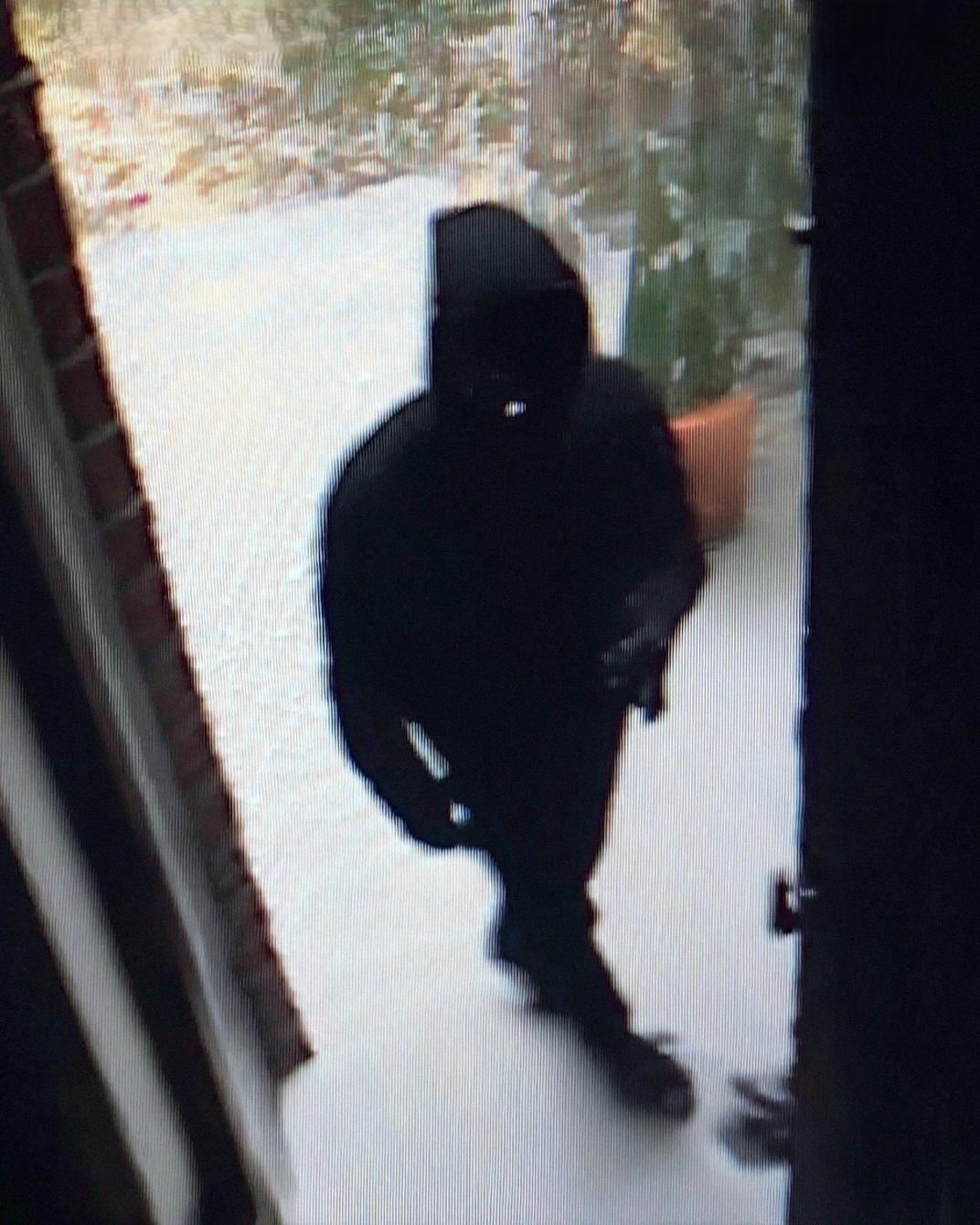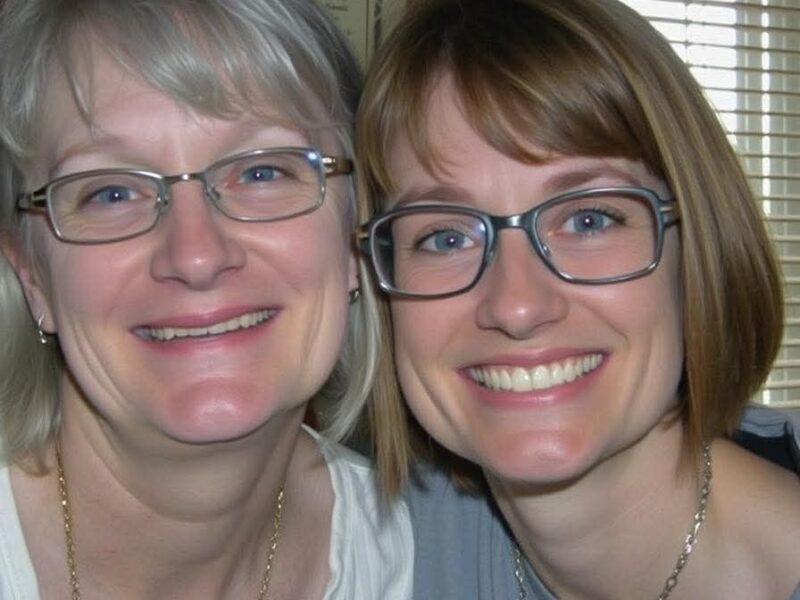After fifteen years of living alone, I thought I’d finally learned how to handle silence. The kind that settles after you lose someone you love. My husband passed away a decade and a half ago, and our only son left twenty years back, choosing a new life abroad. I’d grown used to my routines — morning coffee, crossword puzzles, tending to the garden, and talking to the framed photo of my husband on the mantel. But about a month ago, strange things started happening in my house.
It began small. A picture frame turned slightly, a vase not where I remembered placing it. I told myself it was forgetfulness — a harmless symptom of being sixty-two and distracted. But it got worse. One morning, a dining chair was in the living room, pressed up against the wall like someone had moved it for a reason. Another day, I found a family portrait sitting on the kitchen counter, even though it had hung in the hallway for years. I felt my stomach twist. Was I losing my mind?
At first, I laughed it off, blaming my own absentmindedness. But deep down, fear started to bloom. I’d lie awake listening for noises, waiting for footsteps, a creak — anything to prove I wasn’t imagining things. Nothing. Only silence.
After a week of sleepless nights, I decided to document everything. Every night before bed, I took photos of each room on my phone — the furniture, the decorations, everything. Each morning, I compared the pictures. And what I saw chilled me. Things really were moving. Entire items were being rearranged — chairs swapped rooms, photo frames changed walls, ornaments vanished and reappeared elsewhere. I wasn’t forgetful. Someone — or something — was in my house.
I told myself ghosts weren’t real, but the thought crossed my mind. Maybe my late husband was trying to send me a sign? Still, I didn’t believe in that sort of thing. I needed proof. So, I bought a set of security cameras online and installed them myself — one in the living room, one in the kitchen, one in the hallway, and one in my bedroom. I thought it was overkill, but I needed answers.
The first few days were uneventful. The footage showed nothing but an empty house and the occasional flicker of light through the curtains. But on the fifth night, everything changed.
When I reviewed the living room camera, I froze. There, moving in the shadows, was a figure dressed entirely in black — gloves, hood, face covered. I could see them moving slowly, deliberately, rearranging my furniture. They seemed to know where every camera was, never looking directly at one, always keeping their face hidden. Watching it made my skin crawl.
My hands shook as I called the police. An officer came by that evening. I showed him the footage, my voice trembling as I explained. He looked uneasy, glancing between me and the paused image of the intruder. “We’ll increase patrols,” he said. “Keep everything locked, ma’am. Don’t take any chances.”
That night, I barely slept. I kept the lights on and every door locked. Still, the feeling of being watched wouldn’t leave.
The next morning, I called the same officer again. I couldn’t keep living like this — trapped in fear inside my own home. We decided on a plan. I’d leave the house during the day, as usual, but watch the live feed from my laptop somewhere nearby. If the intruder came back, the police would be ready.
So, the following afternoon, I packed a small bag and left the house. Instead of going shopping, I settled in a café across the street. From the window, I could see my front door. My laptop sat open in front of me, the live footage running on all screens.
For hours, nothing happened. I sipped coffee, tried to read, but my eyes never left the screen. Then, just as I started to think it might be a false alarm, the front door creaked open.
The figure stepped inside — dressed the same, all black. My heart pounded as I called the officer, whispering, “He’s here. He’s in my house right now.” Within moments, patrol cars were on their way. I watched, helpless, as the intruder wandered through my rooms, opening drawers, touching my things, moving with familiarity.
Then, on the feed from my bedroom camera, I saw something that made my blood run cold. The intruder opened my closet and pulled out one of my late husband’s sweaters — held it up, pressed it against his chest, and then dropped it to the floor. I could almost feel the violation through the screen.
Moments later, the police arrived. The sound of pounding on the door echoed through the footage. The intruder froze, then bolted for the back door. The officers shouted, chased, and tackled him in the yard. I grabbed my coat and ran from the café, my heart hammering. When I got to the backyard, the sight stopped me cold.
The police had the intruder pinned on the ground, his mask pulled off. I gasped. It was my son.
The son I hadn’t seen in twenty years.
He looked wild — older, thinner, his eyes bloodshot and defiant. “Let me go!” he shouted. “This is my house! I have a right to be here!”
The officers turned to me, confused. My knees nearly gave out. “Trevor?” I whispered. “Why would you do this?”
He laughed, a bitter sound I didn’t recognize. “Why do you think? You cut me off! You abandoned me! You’re sitting here in this big house while I have nothing!”
I stared at him, stunned. “So you broke in? You wanted to terrify me?”
He sneered. “If I could make you look crazy — get you declared mentally unstable — I could become your guardian. Sell the house. Access your accounts. It was supposed to be easy.”
The words hit me like a punch. My own son — the child I’d raised, loved, worried over — had returned not out of love but greed.
The police took him away. I watched, numb, as they led him out in handcuffs. The house felt foreign when I stepped back inside. Every piece of furniture, every photo, seemed to belong to another life.
Days later, the police called. Trevor had confessed everything — the debts, the plan, the manipulation. He’d been living out of his car, drowning in bills and anger. I didn’t know whether to hate him or pity him.
In the end, I agreed to pay off his debts — not for him, but to end it all. I dropped the charges but filed a restraining order.
When the officer handed me the paperwork, I said quietly, “If he comes near me again, I’ll press every charge you have. Tell him his father would be ashamed.”
That night, I sat in the living room with the lights dimmed. The air felt heavy, hollow. Losing my husband had been hard, but losing my son this way — that was something else entirely.
I thought I’d felt every kind of grief there was. I was wrong. This one came with a heartbeat — a betrayal that echoed in every corner of the house I used to call home.
And though I got my peace back, it came at a price I wouldn’t wish on anyone.


